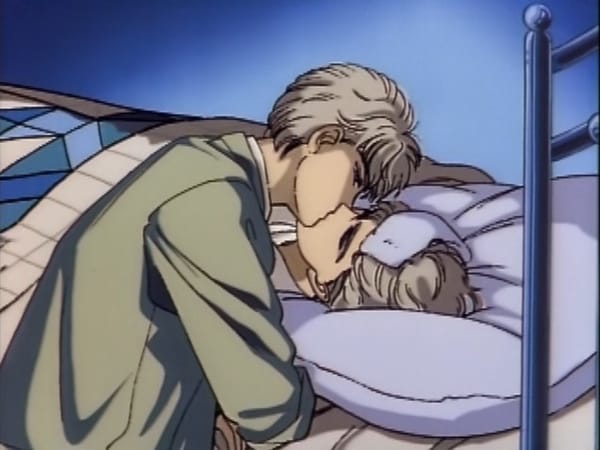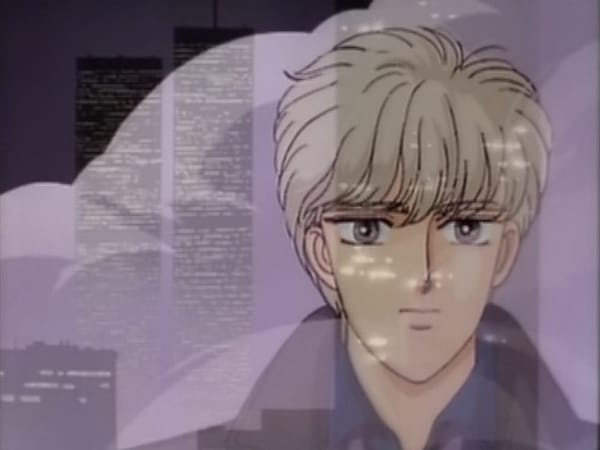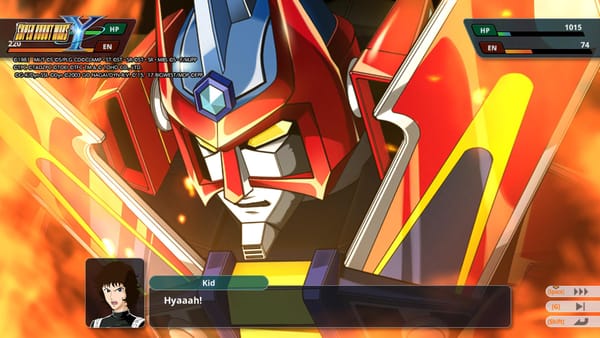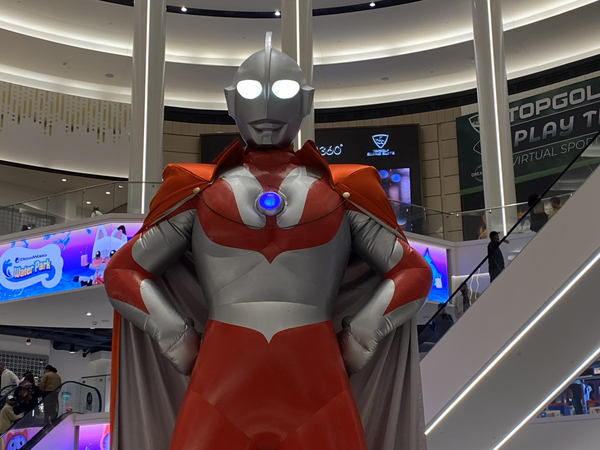Yakuza: Like a Dragon review: All the same great Stuff you love, now with less Fun
The new Yakuza series has a long way to go to approach Dragon Quest
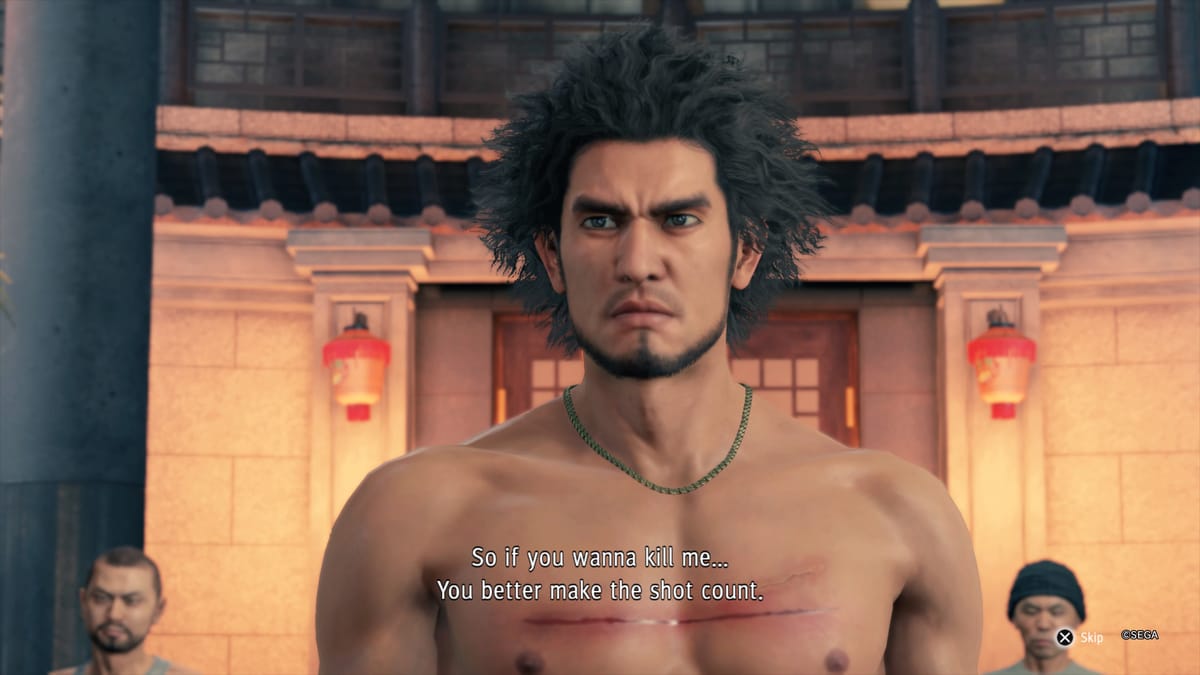
I was one of the people who wasn’t so excited about the Yakuza series’ turn from an action RPG to a more traditional JRPG format. I was unexcited enough, in fact, that I waited this long— for Yakuza: Like a Dragon1 to literally show up in my lap for free on Playstation Plus— to play it.
From the moment of the announcement, I had a lot of ideas about how the genre shift was going to make the series worse. It wasn’t that a Yakuza RPG was guaranteed to be bad; it was just that the game as it was was unique among its peers, and now it was going to be yet another JRPG. With as many Yakuza series games as there already are, I felt a bit of a loss here.
Unfortunately for me, the developers did pretty much everything I was worried about. Like A Dragon has all the elements that make the Yakuza series great— a rollercoaster story, characters who feel relatably human, wacky subquests — but it’s not a lot of fun to play.
New series, new hero
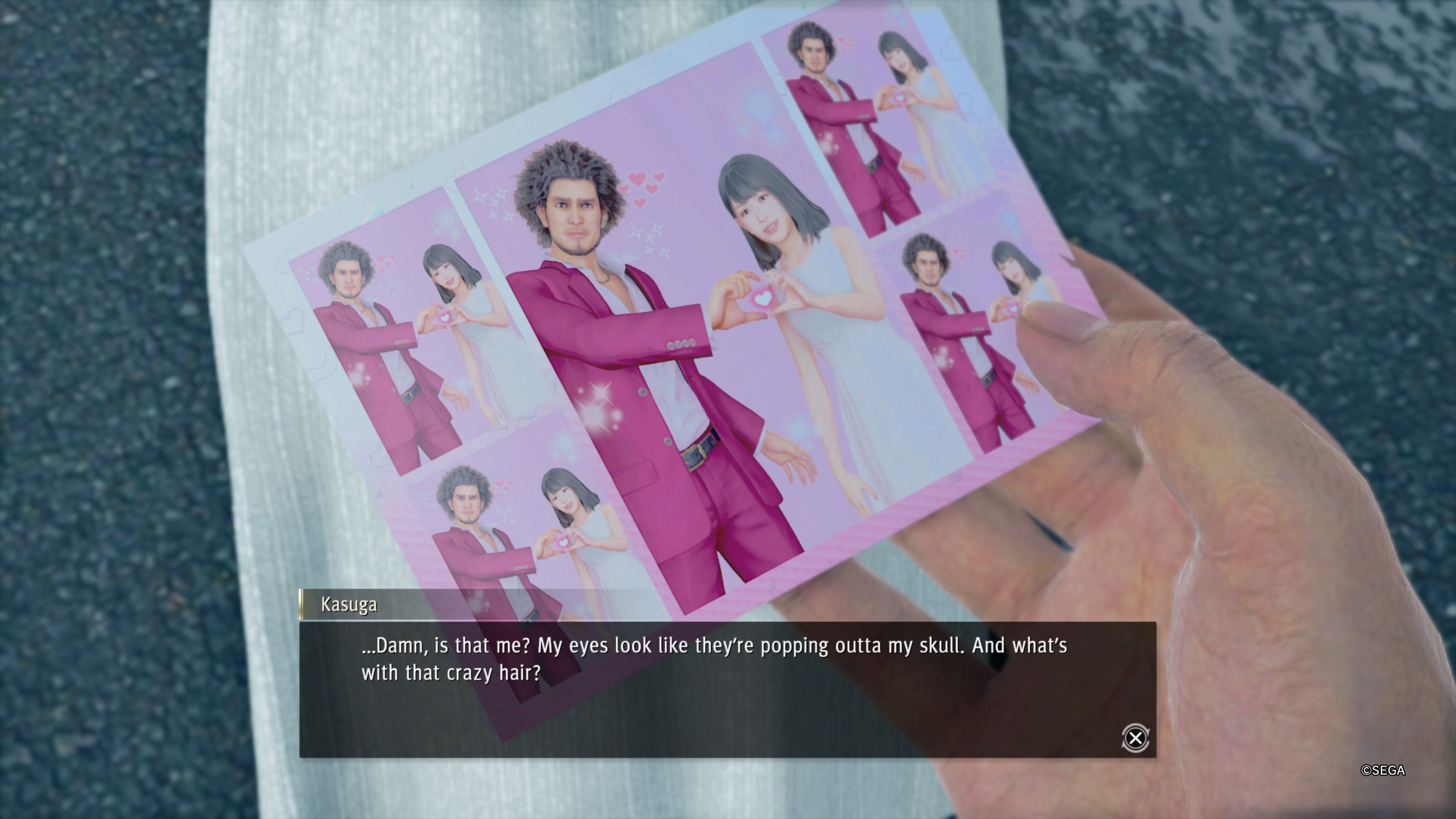
I should say, I basically enjoyed the story and main character. Kasuga Ichiban is a sharp and needed contrast from the stoic Kazuma Kiryu: a larger-than-life goofball with weird hair, a man of the people from the humblest origins, whose weakness is his excessive sentimentality.2 Going through Yakuza’s usual gang warfare story with such a drastically different character genuinely mixes up the experience.
The main part of the game takes place in Isezaki Ijin-cho, a fictionalized version of Isezaki-cho in Yokohama in the same way Kamuro-cho is actually Kabuki-cho in Shinjuku. Upon arriving in town, Ichiban has to work his way up from homelessness, assemble a crew, and meander around town for a while before the real story starts.
The rags-to-riches angle is a fun idea, and provides a real-world structure that purposely mirrors Like A Dragon’s stated inspiration and Kasuga’s favorite childhood game: Dragon Quest.
But bringing up Dragon Quest so much only casts Like a Dragon, as an RPG, in an unfavorable light.
A terrible map
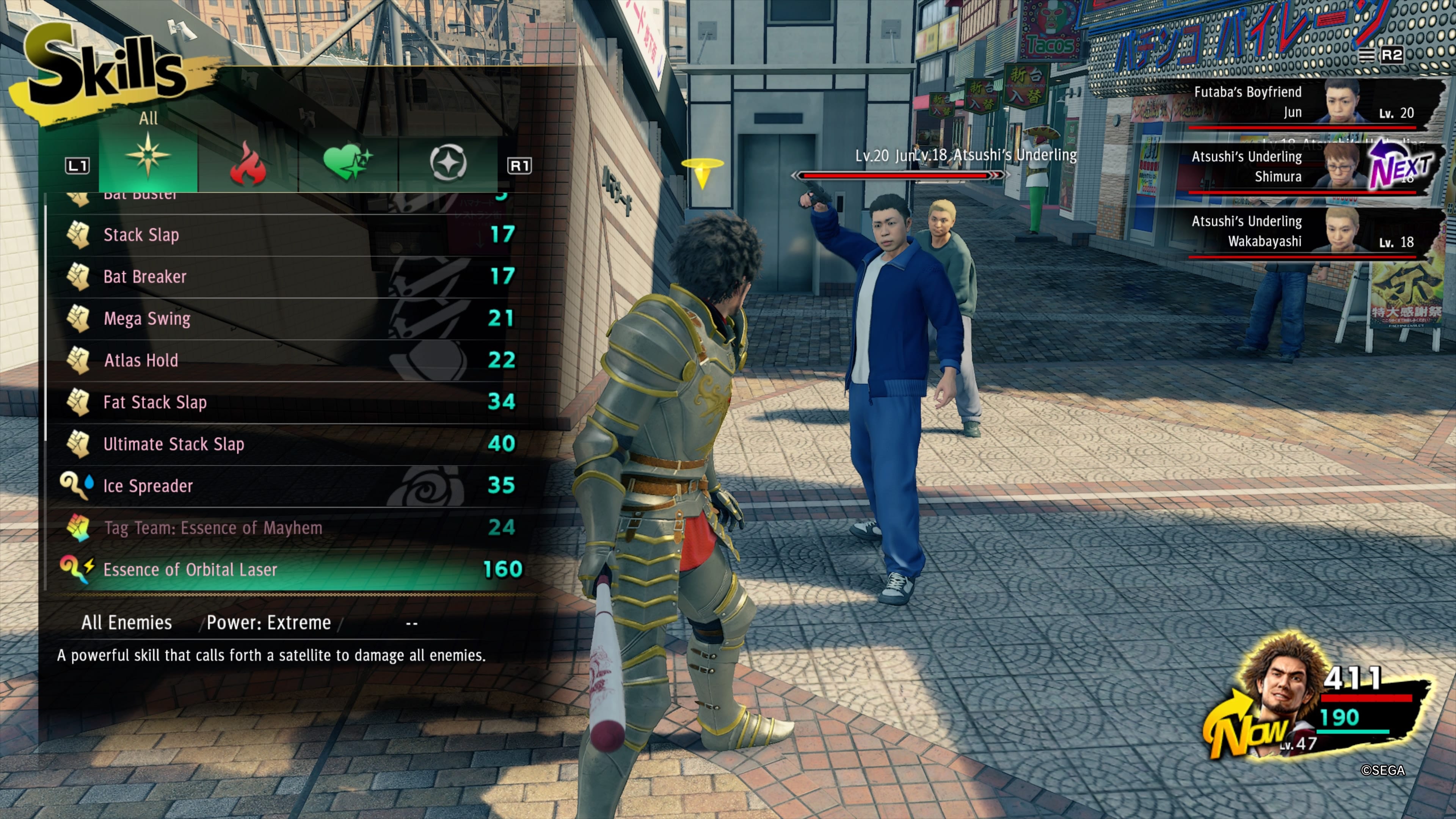
In Lost Judgment, which was released after Like a Dragon, I didn’t mind Ijin-cho at all. It was a little weird to me how big the place was, but thanks to the skateboard, traversing all that space quickly became a fun diversion.
Now I understand the experience that Lost Judgment had to fix. In its efforts to be more like a traditional Japanese RPG, Like a Dragon presents players with a huge map that they must slowly uncover and then traverse at a plodding pace. Ijin-cho is full of long, empty streets and wide open areas, purposely making every trip a journey.
In Yakuza, it feels like there’s something new to see on every corner. In Like a Dragon, shops and diversions are few and far between in the tradition of the classics: after all, we can’t have the player reloading on HP and MP at a shop or restaurant every five steps.
But this clashes badly with the free-roaming feel of the Yakuza series in general. Particularly in the early parts of the game, it can take fifteen minutes to get down a single city block because of the sheer frequency of random battles, sometimes one immediately after the other.
This presents a big problem when, for example, a function as basic as a job change requires players to walk or take a taxi to the one location in the game— a temp office— where changing jobs is possible.
Did I mention that taxis only go to one part of town, and that you have to walk half the map every time you want to go anywhere beyond there?
(1/11: I am actually wrong about taxis. You have to use a taxi before it becomes available for quick travel, so it’s important to tag every taxi you see. I played through the entire game and posted this review before being told I had done something wrong.)
Like a Dragon makes it too difficult for players to get around town for them to do what they want at any given moment, including the fun side activities that are such a big draw for these games. A mini-game in Yakuza is something you do on a whim, but in Like a Dragon you have to make a trip out of it.
Walking around Ijin-cho drives home that the Yakuza formula and classical JRPG format might not go together as well as the developers’ bosses originally imagined.
Battle
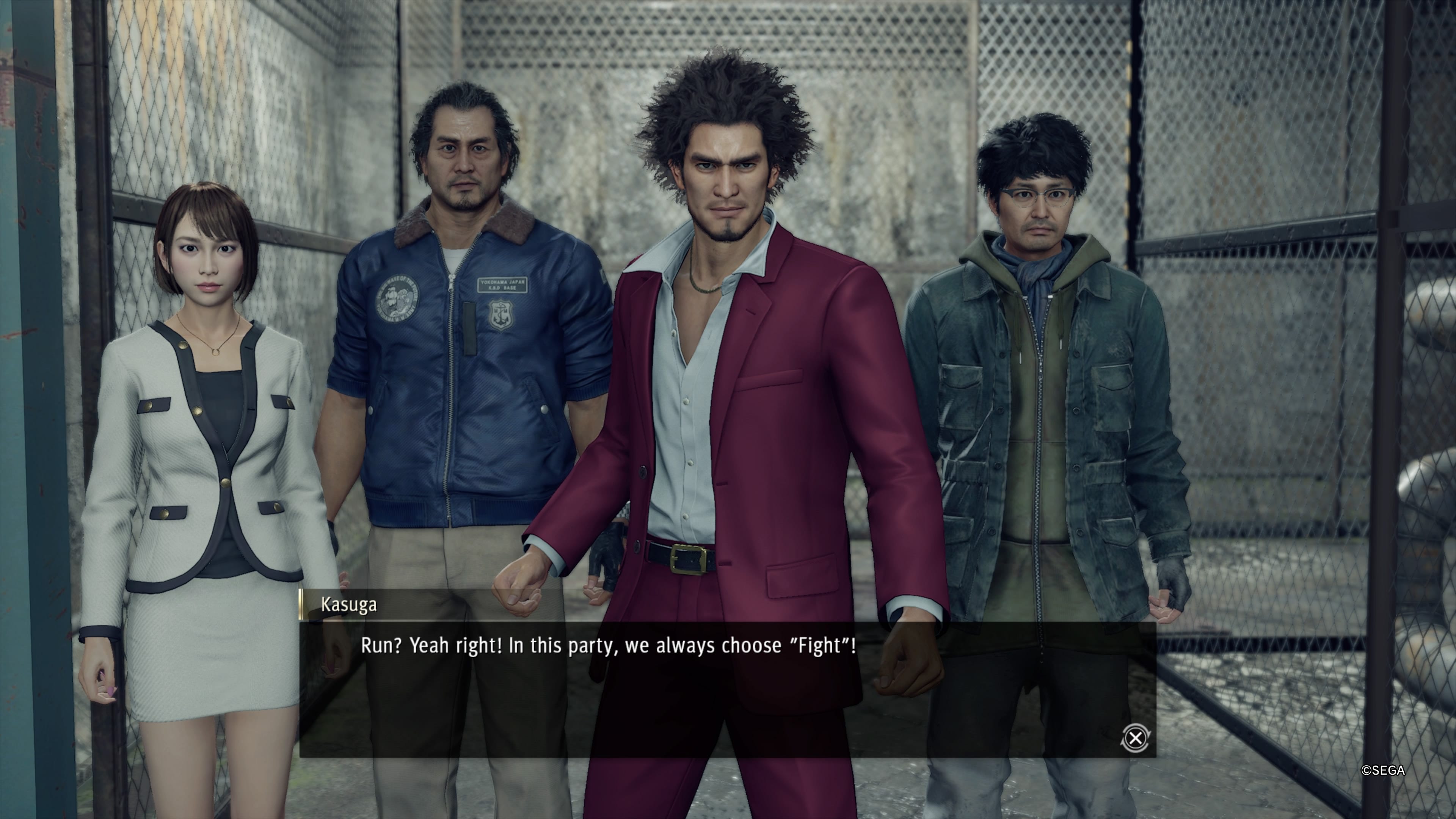
For all the talk about Dragon Quest— and a cute gag where Kasuga’s childhood love for DQ makes him imagine real combat as a turn-based battle— the battle system is probably more like a Persona (which, remember, is a Sega property now) than a Dragon Quest.
There is a commendable attempt to adapt the physicality of Yakuza’s combat to an RPG environment, with players parrying attacks on defense and destroying their surroundings in battle. That part’s a little janky, too, with AI-controlled characters not knowing where to get to their target or tripping over the scenery. But most importantly, the actual combat system isn’t on the level of a great RPG.
Let’s use Dragon Quest XI as an example. In XI, party members have distinct, customizable roles in battle— attackers, supporters, healers, magic bombers— and the player has just enough choice to enjoy assembling a team that does exactly what they want, to their personal taste. All the time you invest into fighting monsters and grinding experience points helps you build up a team that really feels like your own. The numbers are just right, and the process is the payoff.
Like a Dragon’s equivalent “job” system— featuring wacky real-life jobs as RPG classes, from breakdancer to dominatrix— has so many problems I don’t even know where to begin.
The roles are unclear: you have to guess at what these jobs do in RPG terms, and then invest in that job’s specialized weapon with money you don’t have much of. Only after using them in battle for a while do you get a job’s strong skills and find out what role that job actually plays in your party. There’s a possibility you’ll just end up with a crappy job (like the aforementioned dominatrix3) that isn’t very useful in battle.
Jobs don’t really feel like they have their own unique value to them, because the battle system for the overwhelming majority of the game boils down to finding an attack that will kill a lot of mooks at once and using it repeatedly. You’ll need someone to play healer for bosses, but that’s about it.
Later on, attack type weaknesses like in the Megami Tensei series (but invisible) start to become relevant, but access to these different attack types is severely limited. Most of the jobs I tried had 10 different attacks, all of which were “punch” type. If an enemy is weak to lightning, just don’t bother.
And if you actually dabble with different jobs you’ll find yourself at a disadvantage, effectively starting over from level 1 in a new job as the weak link of the party. After switching jobs with Kasuga twice, and realizing halfway into the game that he was now actually weaker than my other team members, I never bothered switching jobs again. Characters’ unique default jobs— Hero, Homeless Guy, Assassin— generally turn out to give them their best stuff. Only in the post-game’s power leveling does it seem at all sensible to level multiple jobs.
(There’s also this one job that gives Kasuga the ability to break various walls on the map and in dungeons, and if you never assign this one job to this one character, you simply never find out that this is something you can do until you get stuck in a dungeon and Google it. What the hell?!)
That you’re better off just ignoring it makes Like a Dragon’s job system a real waste, in total. The only answer to these issues is old-school Dragon Quest experience grind— metal slimes, for those in the know— which isn’t too well-done in this game either.
Dungeons
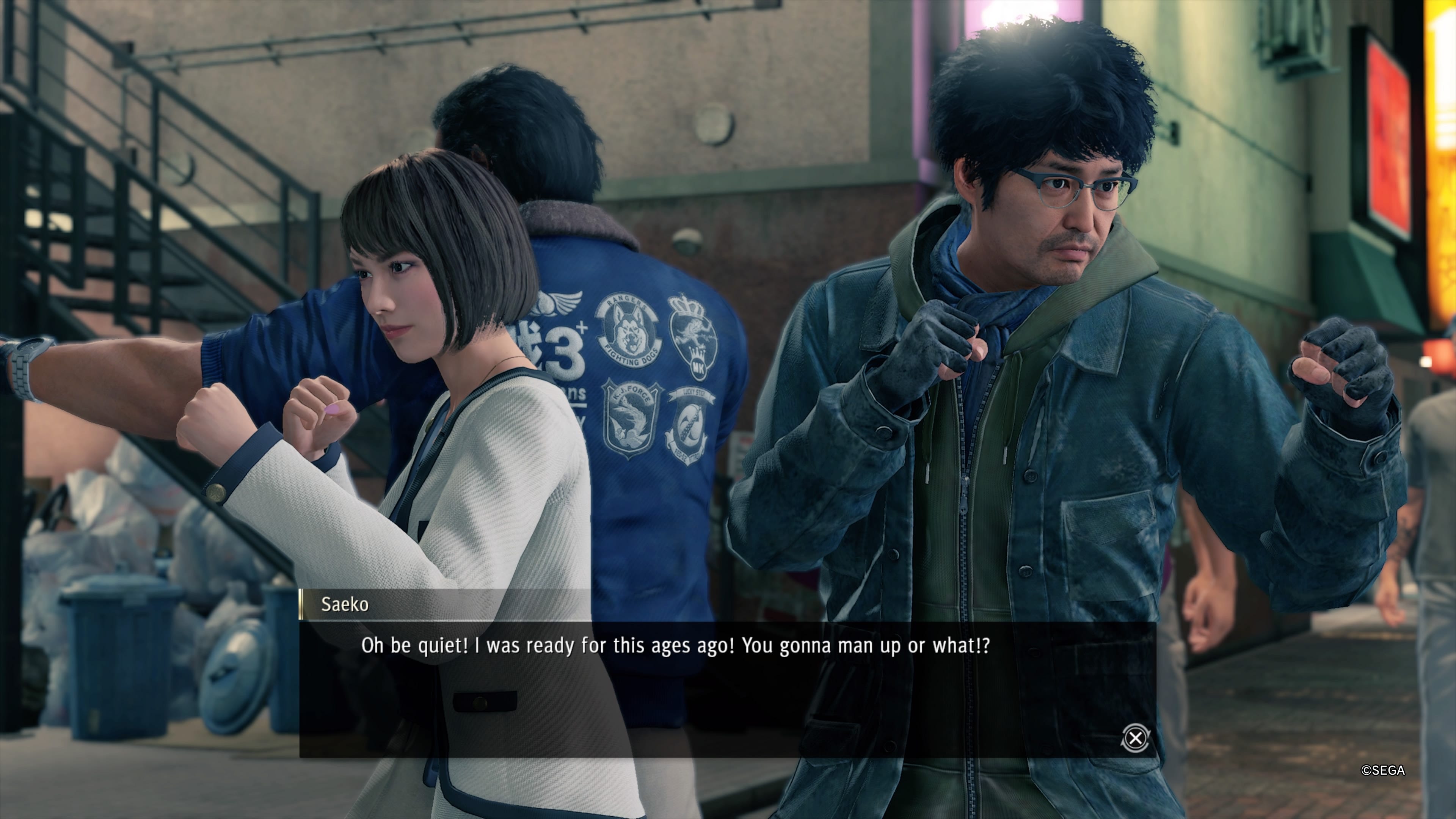
That Like a Dragon forces players through mercifully few dungeons over the course of the game indicates some kind of understanding of the fact that its dungeons are absolutely miserable.
In the Yakuza series, the closest you get to a traditional RPG dungeon is when you inevitably raid a yakuza office or other crime-lord stronghold. The resulting action game set-piece is fast, exciting and visceral, like playing through the climax of an action movie. They’re highlights of each game that you expect and look forward to.
In Like A Dragon, these scenes become dungeon crawls through an office building. Yakuza offices don’t exactly lead to thrilling RPG dungeon designs, but they’re better than the various interminable sewer dungeons. Identical hallways, identical battles, multiple floors. I don’t object to JRPG dungeons: I object to badly designed JRPG dungeons, and these are just awful.
Not only are the sewer dungeons boring, they’re obviously only there just to make the game longer. An obnoxious and ultimately irrelevant demand to grind a large amount of money to progress the story towards the end of the game is the most egregious example of that kind of padding.4 You don’t need to pad a game that takes 30 hours to finish on the low end!
Story and characters
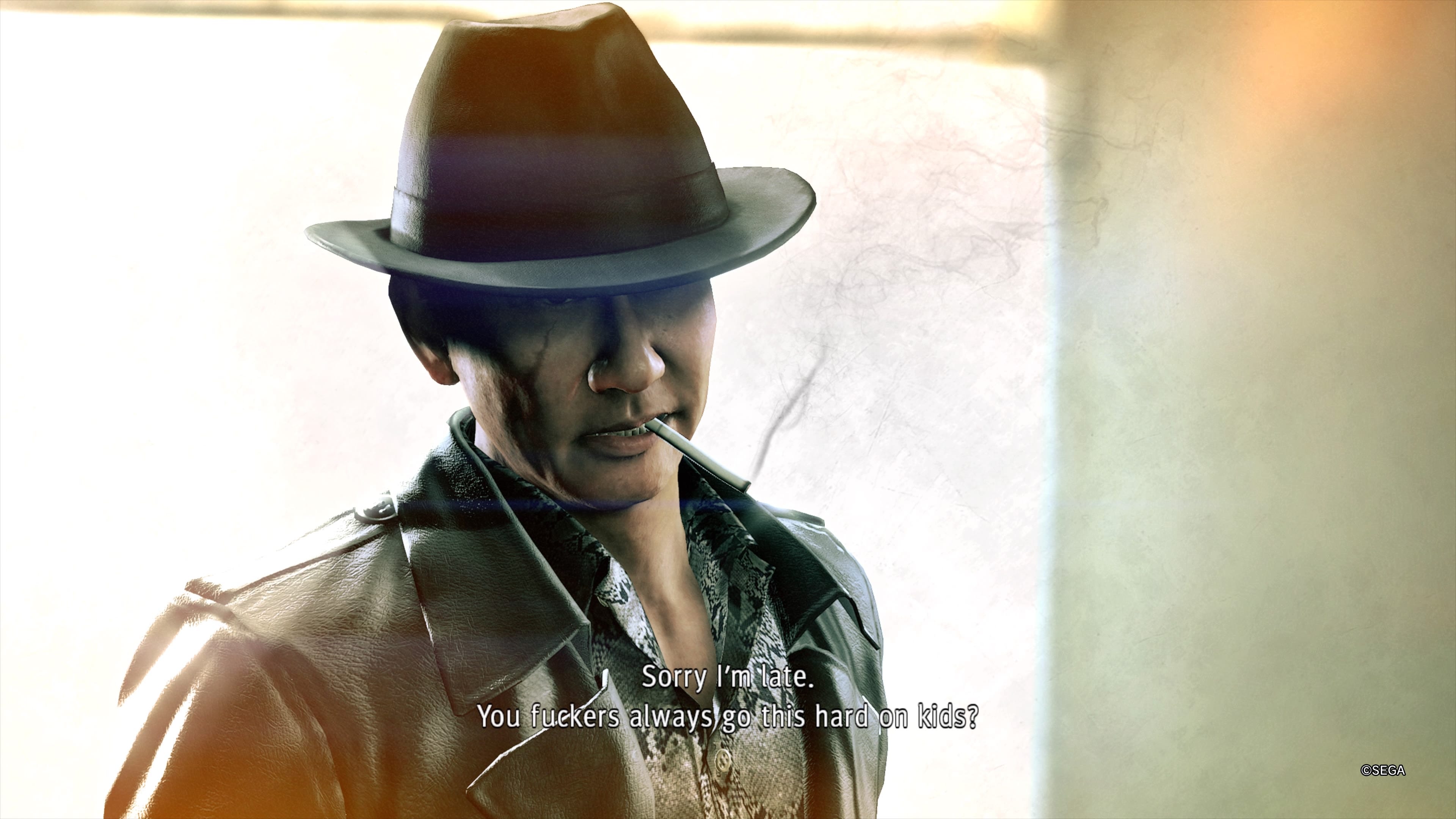
This game is an origin story for Ichiban, a character who is meant to carry a series on his shoulders and can in every sense do so. The tear-jerking tale of Ichi’s found yakuza family, centered around his mysterious, compelling father figure Arakawa, gets a little over the top, even for Yakuza… which, well, I don’t necessarily hate.
Ichi comes up from nothing in Ijin-cho, wandering around and taking odd jobs with his crew. But once the dark machinations in the background become visible, tying the story more directly to the main series, it starts to get really hard to talk about what’s going on without giving everything away.
By comparison to Ichi, your party members do feel a bit like they’re just along for the ride, ironically drifting out of the narrative as their Bond stats peak. Two party members appear way too late in the game to make a mark, and one is optional, so she doesn’t really appear outside of her own carved-out space. That said, the banter at the bar and around town is the best character content the game has: that’s a compliment.
Listen, I can’t talk about all the mini-games
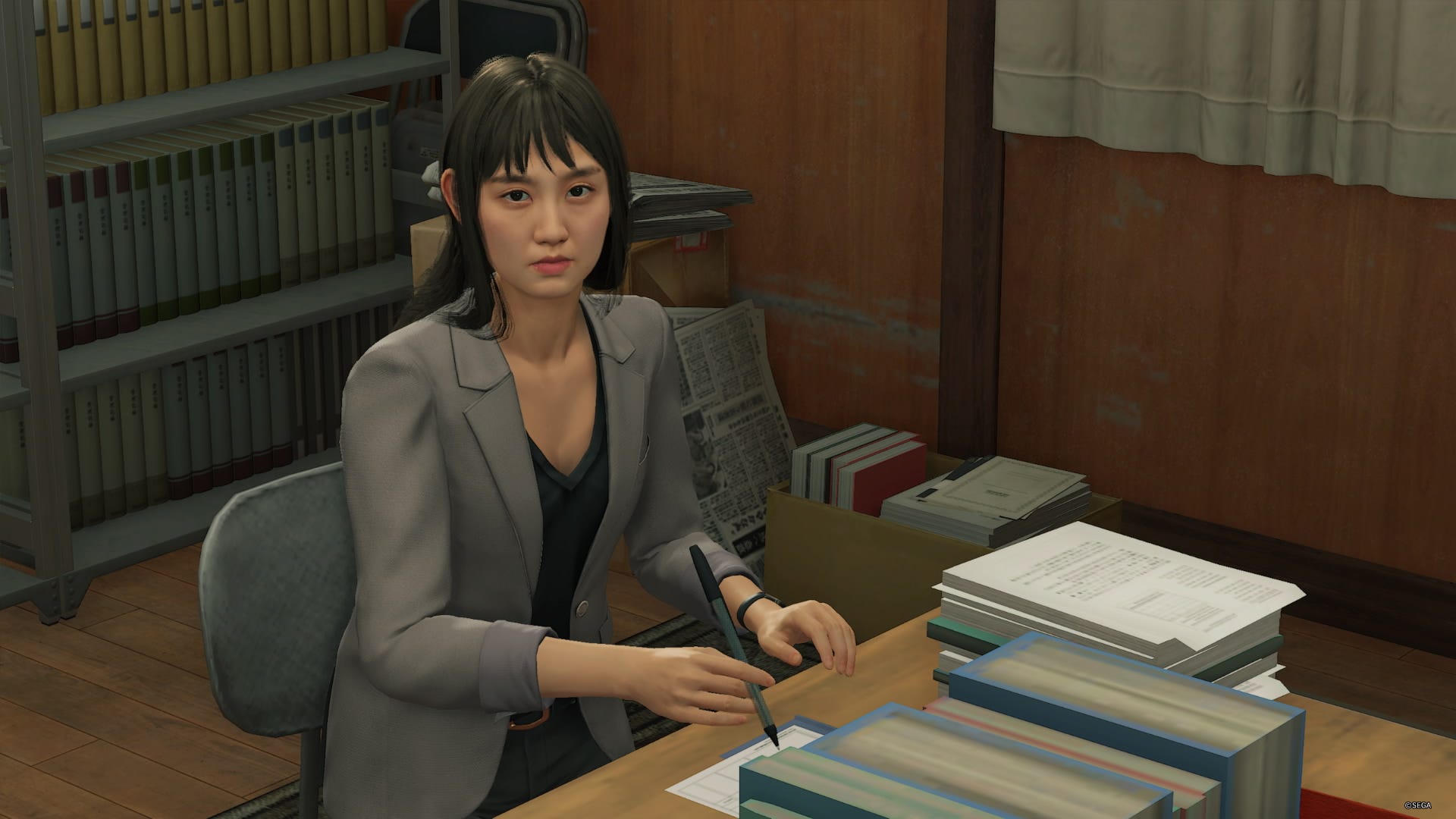
I mentioned that it’s hard to actually get from place to place, so you don’t end up doing a lot of mini-game stuff.
There is one major exception: the business management game. It is technically possible to beat Like a Dragon without playing the business management game, but there’s so much incentive behind it— including a powerful exclusive party member— that you’re all but forced to play it.5
Business is a full on mobile-phone style game with everything but the gacha. Once you figure out how the system works and what you need to be doing every session, the game settles into a steady cycle of upgrading— and at the very top, you stop upgrading and just hold down a button. It wears out its welcome long before it finishes— and mercifully, the game gives you the money you need and the party member right around that point— but I was compelled to finish and sunk in the hours.
I wish I could say you never have to worry about money again after becoming the number one corporation in Japan, but it wouldn’t be true. The post-game of Like a Dragon is dumb enough that you should probably just stop playing at the end credits.
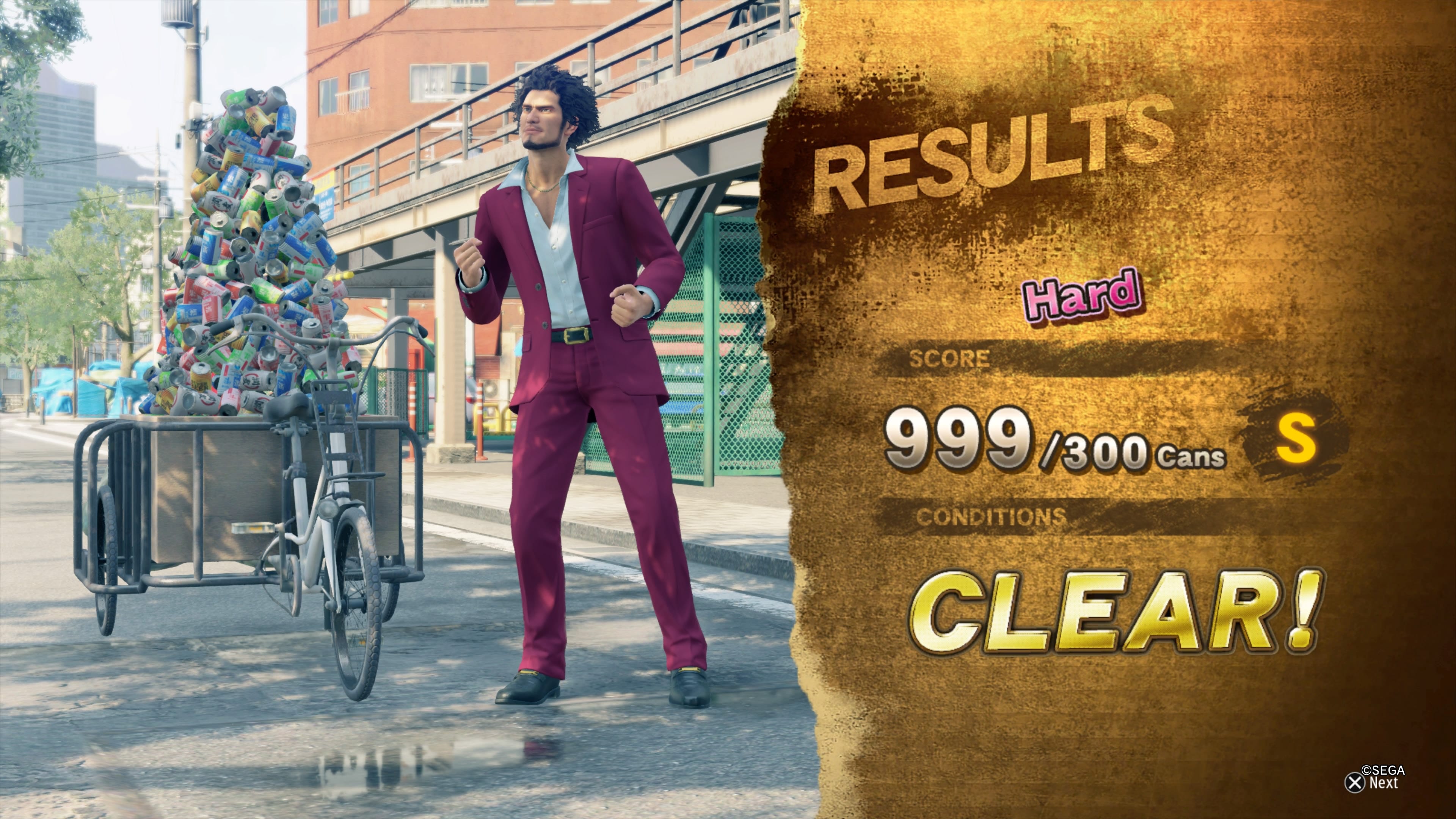
As an arcade type, I actually really enjoyed the can-collecting mini-game at the very start of the game. Basically just Pac-Man on a bike, homeless Kasuga must collect cans for change in a death race with other vagrants. I got so hooked on this game that I had to max out the score counter before I did anything else.
I did notice that due to the game’s RPG structure and general stinginess about powerful items, you don’t get anything great for winning at any of the mini-games I tried. I’m fascinated by the excessive nature of Japanese slots, for example, and this game lets you play real machines like Million God and Souten no Ken. Get a jackpot in one of these games and the slot machine will run on auto for an hour at a time. But despite that lengthy time investment, the rewards are negligible at best. I found this weird throughout… again, except for the business game.
Conclusion: I was slogging. Don’t make me slog
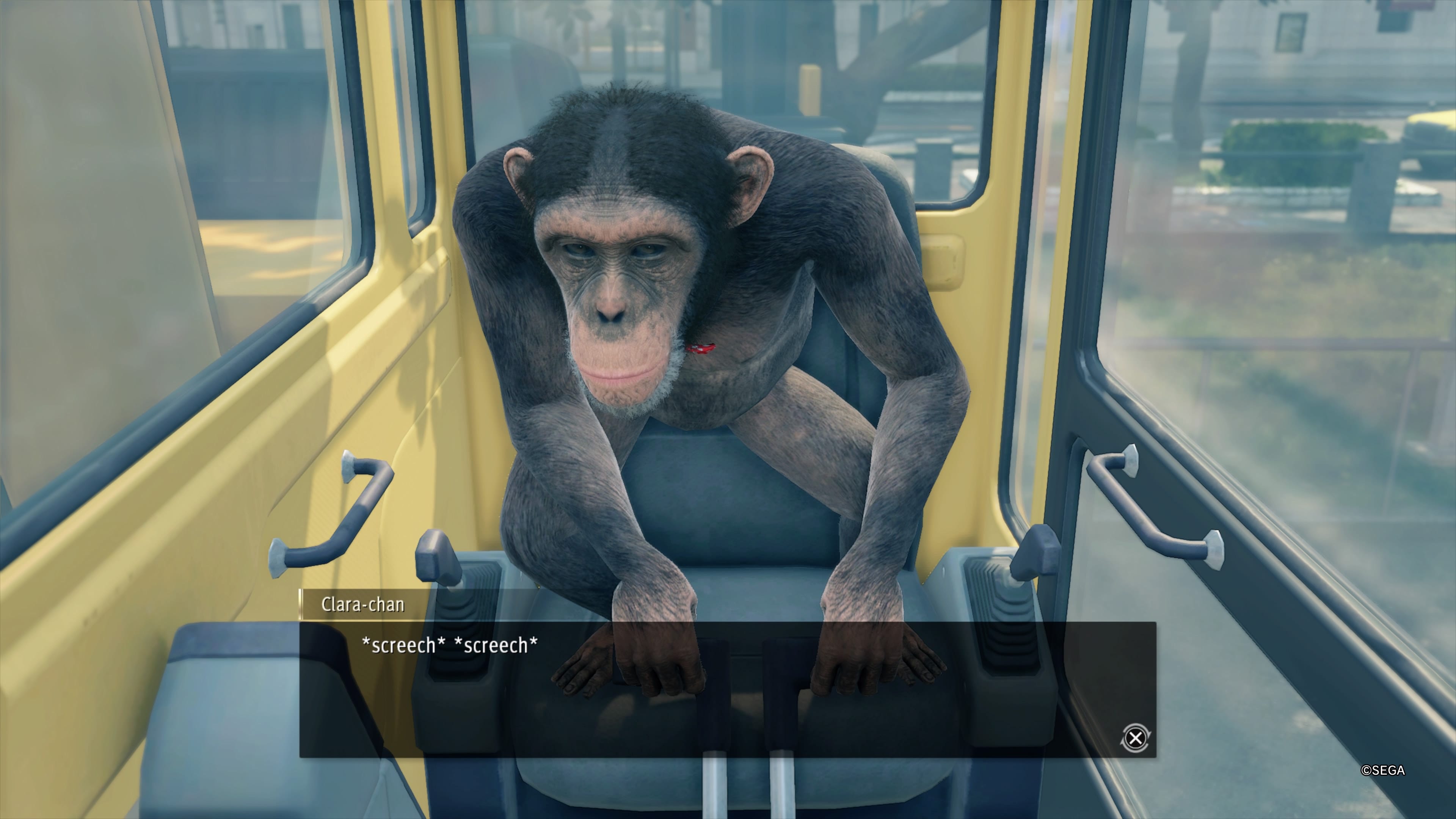
It’s natural that the shift from an extremely refined action/RPG to a brand new traditional RPG would be rocky. I expected Like A Dragon to be rough. But I was hoping it wouldn’t make me feel like I was slogging through boring stuff to see the ending. That’s the reason I played the old Yakuza games: they never dared to waste my time.
I hope to see big changes in the next game— which promises a return to Kamuro-cho, for starters— but the mainline Yakuza series is definitely not at the top of my list anymore.
Directly series-numbered in Japan as Ryu ga Gotoku (Like a Dragon) 7 ↩
Kiryu has the same problem as major game franchise protagonists like Snake or Kratos; he isn’t allowed to ride off into the sunset even when it makes sense for him to. ↩
One of the dominatrix’s moves is, unmistakably, the Sarah Bryant somersault kick from Virtua Fighter. The job is useless other than this. ↩
Just a theoretical here: if you were a criminal organization trying to raise up a sham political candidate to meddle with a local election, would you raise the funds yourself or would you ask Some Dude to go out on the street and grab 3 million yen somehow? I know this is a video game. Just a theoretical. ↩
I was very amused by the fact that the party member is a digital clone of popular anime voice actress Saori Hayami. That’s a very specific incentive for a very specific audience. ↩
